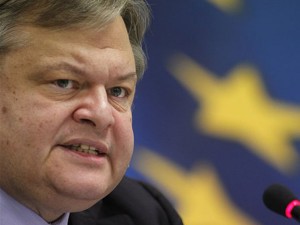Banks to absorb 50% losses on Greek bonds
Philippine Daily Inquirer2:17 am | Friday, October 28th, 2011
The agreement was reached after more than eight hours of hard-nosed negotiations involving bankers, heads of state, central bankers and the International Monetary Fund. It aims to draw a line under spiraling debt problems that have threatened to unravel the European single currency project.
Under the deal, the private sector agreed to voluntarily accept a nominal 50-percent cut in its bond investments to reduce Greece’s debt burden by 100 billion euros, cutting its debt to 120 percent of GDP by 2020, from 160 percent now.
At the same time, the eurozone will offer “credit enhancements” or sweeteners to the private sector totaling 30 billion euros. The aim is to complete negotiations on the package by the end of the year, so Greece has a full, second financial aid program in place before 2012.
The value of that package, EU sources said, would be 130 billion euros—up from 109 billion euros when a deal was last struck in July, an agreement that subsequently unraveled.
“The summit allowed us to adopt the components of a global response, of an ambitious response, of a credible response to the crisis that is sweeping across the eurozone,” French President Nicolas Sarkozy told reporters afterwards.
As well as the deal on deeper private sector participation in Greece—which emerged after Sarkozy and German Chancellor Angela Merkel engaged in negotiations with bankers—eurozone leaders also agreed to scale up the European Financial Stability Facility, their 440 billion euro ($600 billion) bailout fund set up last year.
The fund has already been used to provide help to Ireland, Portugal and Greece, leaving around 290 billion euros available.
Around 250 billion of that will be leveraged 4-5 times, producing a headline figure of around 1.0 trillion euros, which will be deployed in a variety of ways.
Leaders hope that will be enough to stave off any worsening of the debt problems in Italy and Spain, the region’s third and fourth largest economies respectively.
Riskier assets across the board rallied in Asia, with stocks outside Japan up nearly three percent at 0600 GMT in response to the agreement. The euro hit a seven-week high.
Jose Manuel Barroso, president of the European Commission, said the final details on the Greek package, which follows a program of 110 billion euros of loans granted to the country last year, would only be worked out by year-end.
“The key is implementation. This is the key. It is not enough to make commitments, it is necessary now to check if they are really implementing,” said Barroso.—Reuters
